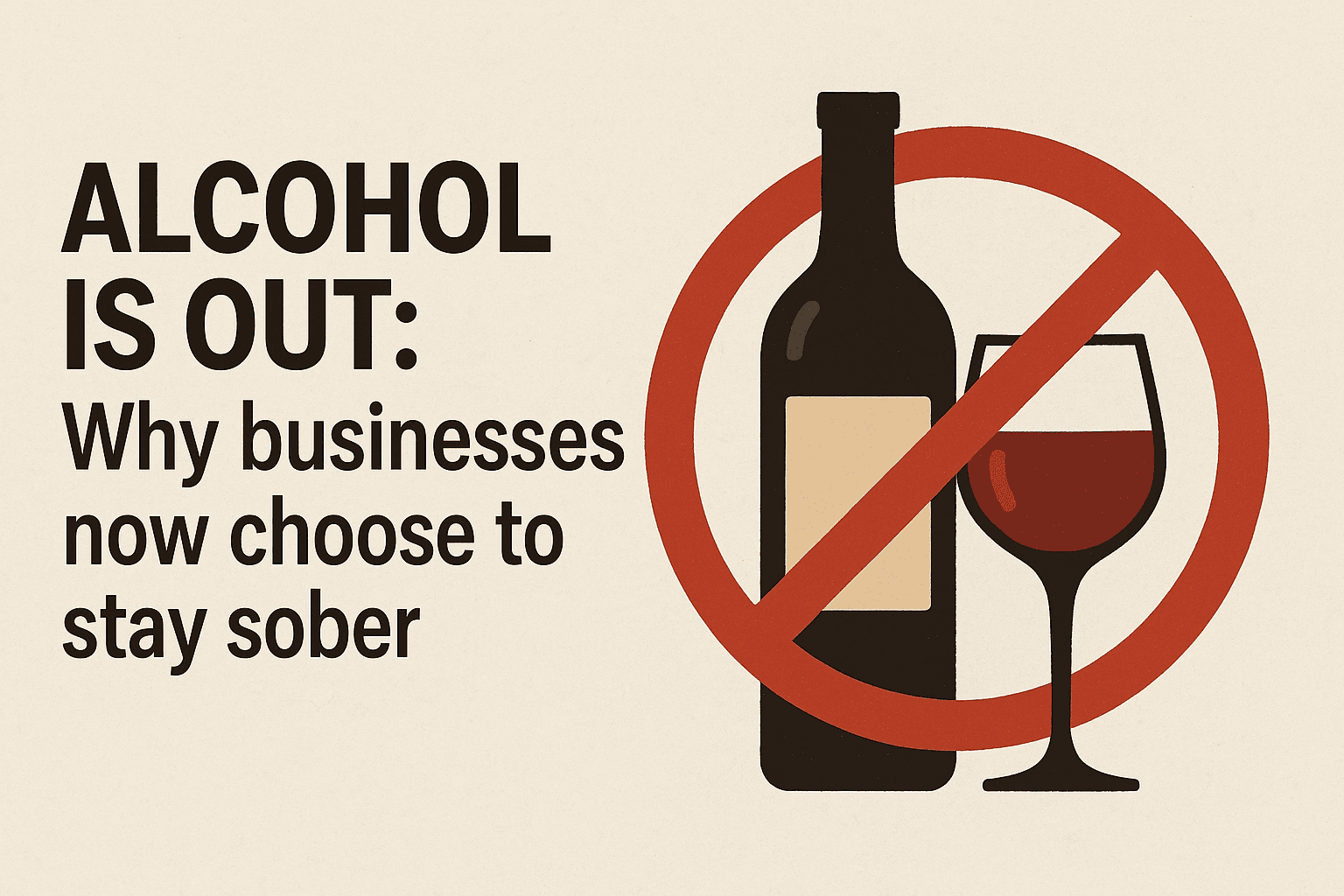The Story

For many years, alcohol was a normal part of business culture. People often drank at meetings, parties, and networking events. Sharing a drink was seen as a way to build trust and friendships. But today, things are changing. More companies are saying no to alcohol, and many business events are now alcohol-free.
So, why is this happening?
One big reason is health. People are more aware of how alcohol affects the body and mind. Drinking too much can cause health problems like liver disease, poor sleep, and mental health issues. Many workers are choosing a healthier lifestyle, and companies want to support that.
Another reason is inclusion. Not everyone drinks alcohol. Some people avoid it for religious reasons, others for health or personal choice. When alcohol is a big part of work events, those who don’t drink might feel left out. By removing alcohol, companies make sure everyone feels welcome.
Safety is also a key factor. Alcohol can lead to bad decisions, especially in the workplace. At company events, it can sometimes cause problems like unprofessional behavior or even accidents. By keeping events alcohol-free, businesses lower these risks.
Younger workers are also changing the culture. Many in Gen Z and Millennials prefer not to drink or only drink a little. They are more interested in wellness, fitness, and balance. These generations are leading the move toward alcohol-free choices at work.
Some companies have replaced happy hours with coffee chats, team hikes, or wellness sessions. These activities help people connect without needing alcohol. It also shows that companies care about more than just profits—they care about people’s well-being.
There is also a shift in leadership. Leaders now want to set a good example. They understand that promoting a sober environment leads to better focus, productivity, and professionalism. A sober work culture can improve performance and reduce distractions.
Of course, not every company is going completely dry. Some still offer alcohol in moderation, especially during special events. But the message is clear: alcohol is no longer the center of workplace social life.
In the end, businesses are simply responding to what people want. Today’s workers want healthy, inclusive, and respectful workspaces. Removing alcohol from the equation is one way to achieve that.
So, while champagne toasts and cocktail mixers may still exist, more companies are finding success in sober celebrations. The focus has shifted to meaningful connections, good conversations, and healthy habits.
The future of work is changing—and it’s looking a lot clearer without the glass of wine.

